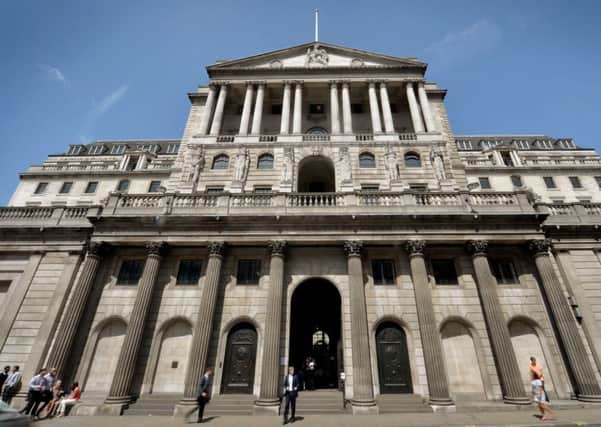Shadow MPC split over merit of Bank raising interest rates


The Shadow MPC, which is a joint venture between Yorkshire-based law firm Lupton Fawcett and The Yorkshire Post, met in Leeds to give its members an opportunity to discuss interest rates and the region’s economic prospects in 2017.
Ahead of the vote, Jonathan Oxley, director of Lupton Fawcett and chairman of the Shadow MPC said: “We need to look at the pressures that are building on inflation. I think there are plenty of reasons to be confident about the Yorkshire economy going into 2017.
Advertisement
Hide AdAdvertisement
Hide Ad“Though there are a number of concerns and there will be some turbulence around the triggering of article 50, we remain very well positioned and need to see a clear strategy for Yorkshire and the North.”
Supporting an increase in interest rates, Andrew Machutchon, of the Federation of Small Businesses, said: “Given the position we’re now in, the economy is neutral and has not suffered greatly due to the Brexit decision, and the events ahead of us once we trigger Article 50 which will no doubt have another impact, perhaps on a short term basis, the Bank of England should consider an upward move of a quarter of a per cent.”
Kevin O’Connor, of accountants RSM, added: “I would suggest is the first thing they should do is get us back to at least where we were pre-Brexit with 0.5 per cent, then take it from there.”
Bill Adams, of the Yorkshire and Humber TUC, spoke in favour of holding rates, saying: “We’ve lost any kind of impetus on changing rates for a number of years, it doesn’t seem to do anything for the economy. For people who borrow money at the street rate, rather than the bank rate, an increase will affect millions who all watch their money, and further deflate the economy.”
Advertisement
Hide AdAdvertisement
Hide AdThe members also voted unanimously not to increase quantitative easing.
Natalie Sykes, regional director of the Institute of Directors said: “Unless it is attached to infrastructure, what is the impact?”
Andrew Marran, of Leeds Beckett University, added: “It feeds the global machine, not the regional one.”